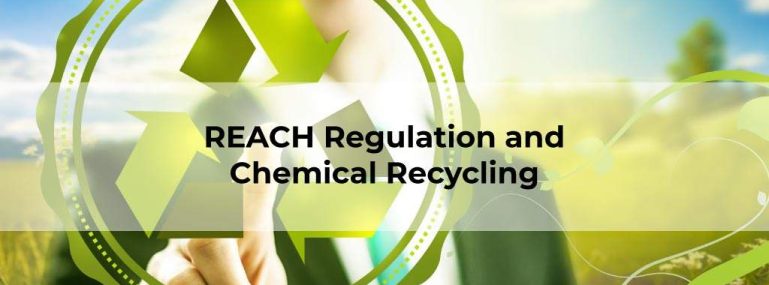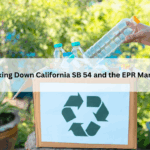“Chemical Recycling of Polymeric Waste in the Circular Economy” was a report published by ECHA to examine the current state of chemical recycling from plastic, rubber, and other polymeric waste materials.
In its report, the commission outlines recommendations and conclusions that must be followed in order to perform chemical recycling and reduce plastic pollution.
As part of chemical recycling, plastic polymers are chemically broken down to produce new products, such as crude oil, fuels, which can be used in new plastic production. Mechanical recycling, which consists of mechanically crushing the plastic into granules, has been replaced by chemical recycling. It is possible to recycle both mixed plastic waste and contaminated plastic waste through chemical recycling.
Recommendations and Conclusions of Chemical Recycling Study
A total of 6 conclusions and 4 recommendations were made in the study.
- At the moment, scientific papers do not mention the regulatory aspects of chemical recycling. REACH and other chemicals, waste and product safety legislation present opportunities and challenges specific to each chemical recycling technology. Consequently, the report recommends that regulatory issues be examined on a case-by-case basis, separately for each type of chemical recycling technology. The report also summarizes feedback from operators on the challenges associated with each recycling technology.
- Only a limited amount of knowledge exists about the potential of different chemical recycling processes to eliminate substances of concern. Further studies at chemical recycling facilities are necessary to reach sound conclusions.
- The circularity of plastics can be achieved using a variety of chemical recycling processes. In order to avoid false generalizations on one technology’s pros and cons for the entire field of chemical recycling, each technology should be evaluated individually.
- Through digital technologies, the traceability of substances of concern in recycling can be improved. Their implementation, however, requires that a lot of effort and coordination be made between and within organizations.
- The lack of clarity in chemical recycling terminology creates confusion about chemical recycling’s potential in the circular economy. The term chemical recycling should be harmonized so that a consistent discussion can be held regarding chemical recycling potential. To distinguish technologies that meet the definition of recycling, outlined under the Waste framework directive, chemical reprocessing technologies should always be mentioned in reports and regulatory documents.
- The use of Block chain technology can be used to monitor substances of concern in plastic waste. However, its implementation requires substantial efforts on the part of companies to implement it.
ECHA mentions that it is critical to understand the different methods for recycling chemicals. By using these techniques, it will be possible to reduce the presence of harmful substances in recycled materials. This will lead to a no-toxic cycle in the circular economy. In addition, ECHA would like to know how many new REACH registrations will be created. The report outlines the advantages and disadvantages of different chemical recycling processes.
Talk to our Global Compliance specialist to understand how this new chemical recycling requirements affect your organization.





